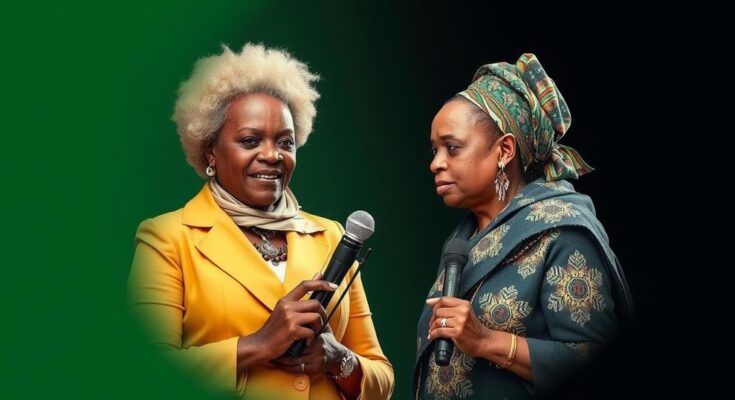Namibia’s upcoming presidential election may see Netumbo Nandi-Ndaitwah elected as the country’s first female president. The election features 1.4 million registered voters and 15 political parties, including SWAPO, which is currently in the lead despite recent challenges. Issues crucial to voters include job creation, especially for youth, and gender equality. The election is set against a backdrop of significant political changes in southern Africa.
Namibia’s historic presidential election, set for this Wednesday, promises to potentially elect the nation’s first female president, Netumbo Nandi-Ndaitwah, currently serving as the Vice President. With approximately 1.4 million registered voters and 15 political parties in contention, the elections come at a pivotal moment, showcasing the South West Africa People’s Organization (SWAPO’s) leadership, which has governed since independence from South Africa in 1990. The recent early poll results suggest Nandi-Ndaitwah and SWAPO are leading, despite the party’s significant setback in 2019, where they lost their two-thirds majority due to allegations of corruption in the fishing sector. Political analysts emphasize the necessity for SWAPO to secure the support of younger voters to maintain their credibility.
Nandi-Ndaitwah, aged 72, has committed to addressing high youth unemployment rates in Namibia, proposing ambitious job creation plans, while also promising to prioritize women’s issues such as healthcare and equal pay. Her election would align her with notable female leaders in Africa, including Ellen Johnson Sirleaf of Liberia. Political experts advise that should Nandi-Ndaitwah succeed, her leadership must focus on independence, transparency, and the advancement of women’s political participation. As competition intensifies from parties like the Independent Patriots for Change and Affirmative Repositioning, the outcome of these elections could herald significant changes in Namibia’s political landscape, mirroring shifts seen in neighboring countries across southern Africa. The recent political upheavals in the region only heighten the stakes of this election, which may redefine Namibia’s governance practices for years to come.
The upcoming elections in Namibia represent a critical juncture for the nation’s political landscape, particularly with the prospect of electing its first female president. The South West Africa People’s Organization (SWAPO) has been the dominant political force in Namibia since its independence from South African rule in 1990. However, recent years have seen the party’s popularity wane, particularly following corruption scandals that have eroded public trust. Namibia’s political analysts underline the importance of engaging younger voters, who are less connected to the historical narratives of liberation offered by older parties. This election also arrives within a broader context of significant electoral developments across southern Africa, making it a noteworthy event both locally and regionally.
In conclusion, Namibia’s presidential election is not only a momentous occasion for the potential inauguration of the country’s first female president, Netumbo Nandi-Ndaitwah, but also a significant test for the enduring influence of SWAPO in a changing political environment. Voter engagement, particularly from the youth demographic, alongside the need for transparency and accountability in governance, will be crucial for the political future of Namibia. As the elections approach, the outcome may have lasting repercussions, both domestically and throughout the region.
Original Source: abcnews.go.com




